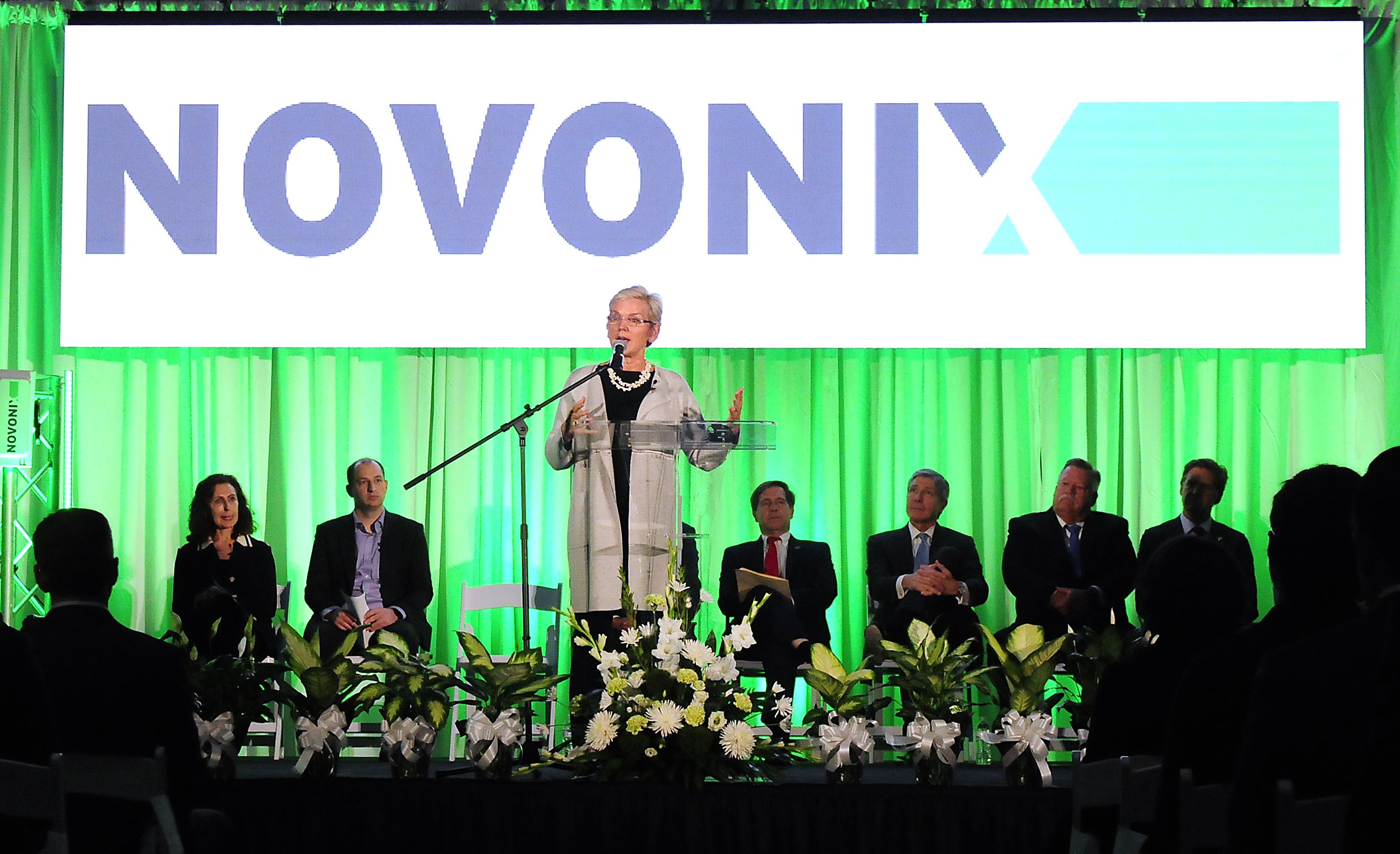Chattanooga Mayor Tim Kelly calls himself “an old car guy,” having grown up in the auto business and operating dealerships himself before running for political office.
In an interview, he termed Volkswagen’s launch of production of the all-electric ID.4 SUV a few months ago “a huge opportunity” for the automaker and the city as VW plans to roll out about 90,000 of the electric vehicles in 2023 from its Chattanooga assembly plant.
The plant employs about 4,700 employees, and the company hired about 1,000 workers over the past year for EV and other assembly.
Chattanooga is sitting amid more than $30 billion of new or planned investments in EVs by auto companies and battery makers in Tennessee and Georgia alone.
In September, Ford Motor Co. broke ground on BlueOval City, less than a year after the company and SK On announced a $5.6 billion investment in West Tennessee.
According to Ford, BlueOval City will create about 6,000 jobs building an all-new electric truck and advanced batteries to power future Ford and Lincoln electric vehicles when it opens in 2025. Ford calls the new facilities its largest, most advanced auto production complex in its 119-year history and the new plant represents the largest single new buisness investment ever in Tennessee.
Eric Grubb, Ford’s director of new footprint construction, said in a statement that the company is building the future in Stanton, Tennessee.
“This facility is the blueprint for Ford’s future manufacturing facilities and will enable Ford to help lead America’s shift to electric vehicles,” he said.
In November, South Korean battery maker LG Chem unveiled the biggest-ever foreign investment in the Volunteer State with plans for a $3.2 billion cathode production facility in Clarksville in Middle Tennessee.
The company in 2021 already had announced a joint venture with General Motors to build a $2.3 billion battery plant in Spring Hill, Tennessee.
Battery material makers charge ahead
Closer to Chattanooga, a company plans to invest more than a half-billion dollars in a new plant in in Etowah, Tennessee, to make a component for the EV and battery storage markets, officials said in August. North Carolina-based Piedmont Lithium Inc. plans to create 117 jobs at a manufacturing facility where it will produce battery-grade lithium hydroxide.
In Chattanooga, Novonix plans to eventually invest about $160 million and employ 300 workers at the former Alstom turbine-manufacturing plant where the Australian-based company is making material for the production of lithium-ion batteries . Novonix took over the former Alstom plant in 2021 and has grown its staff at the plant to about 100 workers and expects to add more over time.
Novonix also is looking at building another plant to produce 30,000 tons of synthetic graphite and employ 1,000 more workers. To aid that effort, Novonix won approval for $150 million of project funding from President Biden’s Bipartisan Infrastructure Law, which aims to expand American manufacturing of battery technology for both electric vehicles and utility electrical grids.
Piedmont Lithium in Etowah also was awarded $141.7 million from the infrastructure law to produce lithium hydroxide (also an EV-battery component).
 Staff Photo by Robin Rudd / U.S. Energy Secretary Jennifer Granholm speaks at the event. U.S. Energy Secretary Jennifer Granholm and others attending an event marking the retrofitting of a former Alstom manufacturing plant for use by Novonix, which makes materials for lithium-ion batteries for electric vehicles.
Staff Photo by Robin Rudd / U.S. Energy Secretary Jennifer Granholm speaks at the event. U.S. Energy Secretary Jennifer Granholm and others attending an event marking the retrofitting of a former Alstom manufacturing plant for use by Novonix, which makes materials for lithium-ion batteries for electric vehicles.Peach State goes electric
Georgia is also capitalizing on the growing EV market to land its biggest business investments of all time.
Hyundai Motor Group unfurled plans in May to spend $5.54 billion in a factory dedicated to EVs and battery manufacturing in Bryan County near Savannah. Non-affiliate Hyundai suppliers are proposing to invest another $1 billion in the project, officials said.
In December, Hyundai and SK On announced they’ve selected a site in Bartow County, Georgia, just outside Atlanta, for a new electric vehicle battery manufacturing facility that will supply Hyundai’s plants in the U.S. Called one of the largest economic development projects in Georgia history, it’s estimated it will create more than 3,500 new jobs through with $4 billion to $5 billion of investment in Bartow County.
Meanwhile, EV manufacturer Rivian began site work in 2022 to build a $5 billion assembly plant and employ 7,500 people at a location east of Atlanta.
Kristi Brigman, the Georgia Department of Economic Development’s deputy commissioner of global commerce, said seven of the state’s largest projects in 2022 involved automotive, battery and recycling companies related to electric mobility.
“Georgia has seen unparalleled success across the state this year…, she said in a statement.
VW”s Chattanooga footprint
In Chattanooga, Kelly said Volkswagen has more land next to its Enterprise South industrial park plant to expand again should it make the investment.
“We have the mirror site here,” the mayor said, noting that VW has the potential to basically reproduce its existing plant next door.
Hamilton County Mayor Weston Wamp said in an interview that he hopes the rollout of VW’s electric vehicles is just the beginning for the German automaker.
“I’m hopeful Volkswagen continues to double down,” he said.
Chris Gl0ver, who heads VW’s Chattanooga operation, said the factory has been inseparably linked with the city for about a dozen years and EV production marks a milestone.
“We’re writing another chapter of our history in Chattanooga,” he said.
VW also produces the Atlas and Atlas Cross Sport SUVs, which have conventional gas-powered engines.
Contact Mike Pare at mpare@timesfreepress.com or 423-757-6318.





